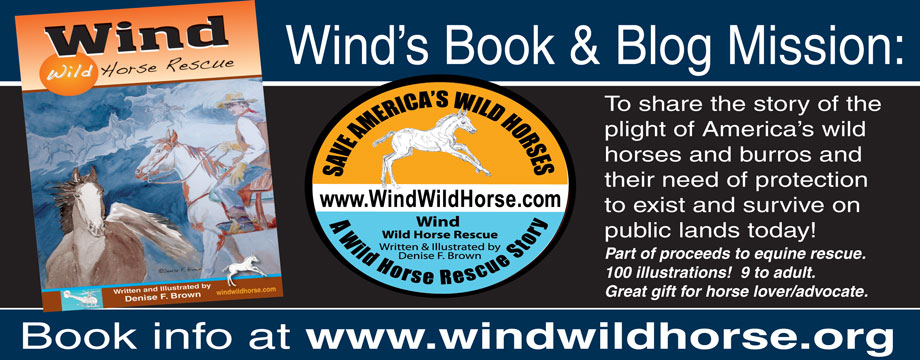Herbert Says Utah Should Take Control of Wild Horse Herds
Written by Bob Bernick on . Posted in Today At Utah Policy
 While it may not be popular with some individuals and groups, Utah should take over the management of wild horses and burros on federal lands in the state, euthanize a number of animals to keep ranges open for cattle grazing, Gov. Gary Herbert told reporters after his monthly KUED-TV news conference.
While it may not be popular with some individuals and groups, Utah should take over the management of wild horses and burros on federal lands in the state, euthanize a number of animals to keep ranges open for cattle grazing, Gov. Gary Herbert told reporters after his monthly KUED-TV news conference.
Herbert, on air, said the Clive Bundy incidents in Nevada must not overflow into Utah. He took steps to keep Bundy cattle from being auctioned at a Richfield, Utah, cattle sale.
Asked about Bundy’s reported statements that African-Americans today may be better off under slavery than living their lives in poverty, Herbert responded: “That is despicable and offense” language.
And as more and more is learned about Bundy – his refusal to lawfully pay federal grazing fees and his personal politics – Americans will turn away from his actions and beliefs, said the governor.
However, said Herbert, he understands how some folks are frustrated with federal land managers. At times it is like they are not listening to rural Utahns needs and troubles.
Among the frustrations is that some ranchers are being told they can no longer run cattle on federal lands, or are having to reduce the number of cattle they historically have grazed on those lands, often because of drought and the fact populations of wild horses and burros having grown so quickly.
“The range can’t support so many animals,” said Herbert.
Horses and burros “are breeding like rabbits,” said Herbert, their numbers doubling every three to five years.
Some federal land sections are supposed to have 300 such animals allowed, but now have 3,000.
Nevada has 10,000 wild horses, and the federal government is doing little to effectively manage them, said Herbert.
Herbert said he knows that some individuals and groups would oppose Utah state management of the animals, especially if management of the herds including culling – or killing — animals.
“Some ranchers are being told they have to cut back 25 percent of their grazing,” Herbert told reporters after the taping ended, speaking before he left the KUED studios.
Federal officials “don’t know what to do” about the horse situation. And Utah “should take over the horse management” on federal lands within the state, the governor said.
The federal government doesn’t manage any other non-endangered species as they do horses – mainly because of citizen opposition to culling herds and killing animals.
“We (state government) would find a way to manage that (horse/burro) population,” said Herbert.
“It would not be popular to take down some horses, but we euthanize cats and dogs. We need an aggressive spay and neuter program” for wild horses and burros.
“We need to do it aggressively” because Utah ranchers are being impacted by the horse/burro herds, the governor added.
“The feds are just ignoring” the wild horses’ impacts on ranchers and cattle grazing, the governor said.
And that leads to frustration, and some sympathy for the likes of Bundy.
But Herbert has no sympathy for Bundy specifically. “We are a land of laws,” which must be obeyed.
And when some Americans are pointing guns at other Americans, that is never a good thing.
As he has said before, Herbert stated state government – if it had control of those federal lands – would cut red tape and bureaucracy in issuing various kinds of permits, like energy development.
Federal agencies are taking five years to approve some oil and mining permits, while in North Dakota, on private lands where the state issues permits, it takes a couple of months.
Herbert said he’s trying not to be too vocal over the Bundy issue and getting federal officials to transfer their lands to Utah because he’s currently having good relations with Bureau of Land Management bosses and with the Obama Administration in general – especially in working to get feds to give Utah a huge $258 million bloc grant and let Herbert start his “Healthy Utah” Medicaid expansion program.
“We don’t want to be adversarial, not confrontational.”
Should Utah get more control over federal lands, “we would not take away any national parks or monuments. There would be wilderness areas” created by Utah lawmakers and the Herbert administration.
But there would also be better management of wild horses and burros, quicker and easer permitting for energy development “where appropriate.”
Herbert said he wanted to make it clear that Bundy in no way represents Utah’s battle over gaining federal lands.
Bundy has refused to pay federal land grazing fees for 20 years, has a number of federal court rulings against him, and said he would fire on federal law officers if they tried to take his cattle or come on his private land (where dozens of so-called “militia” private citizens have come to Bundy’s aid.)
Bundy “is not the face” of Utah’s federal land fight, said Herbert.
“But Utahns (and others) are frustrated with” federal land managers, who often appear to have a deaf ear when ranchers and farmers argue they fear their water rights and grazing permits.
“I hope we can all resolve our issues with no fighting.” “Basically we all have the same goals:” Better management of the public lands.
“Utah is a public land state. And it will continue to be a public land state. The only question is who is best in managing the public land:” Those Utahns who know the issues — the land is right in our backyards — or distant federal government officials who are so far away? Asks Herbert.

